REVIEWS

We hear ‘Points of decision’ first… I wanted to reproduce what Clare was feeling as he was contemplating leaving the asylum – fear, trepidation, elation – in musical terms. The solo violin is significant because Clare himself was a violinist. Also, in his written account, he says he was whistling a tune called Highland Mary – I’ve changed it around a lot, but it’s this tune that the violin plays.
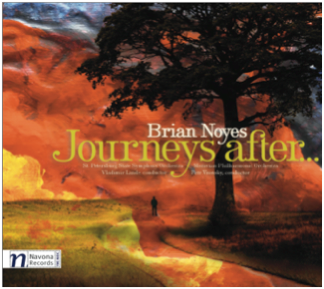
“Noyes employs means both subtle and dramatic to capture an effusion of contradictory feelings. The writing is at turns bold, colourful, delicate and other- worldly,..”
“Half as long as its predecessor, Shadows of Memory is even more impressive, with greater extremes of sonority and telescoping of impassioned events. Noyes savours the possibilities inherent in the orchestral palette as he shapes a cohesive and enveloping narrative.”
“The lengthy “Points of Decision” has a very mysterioso way about it–modern, evocative, on the neo-impressionist side of things in its vivid orchestral color. The shorter “Shadows of Memory” is more turbulent and harmonically stretched. Both works show Noyes as a figure to be reckoned with in the new orchestral sphere.”
“I hope we hear much more from Brian Noyes. In these works he shows himself to be a natural in the orchestral realm. Bravo!”
“if you want to explore Noyes’ unique talent and artistic voice, this disc is worthy of a listen.”
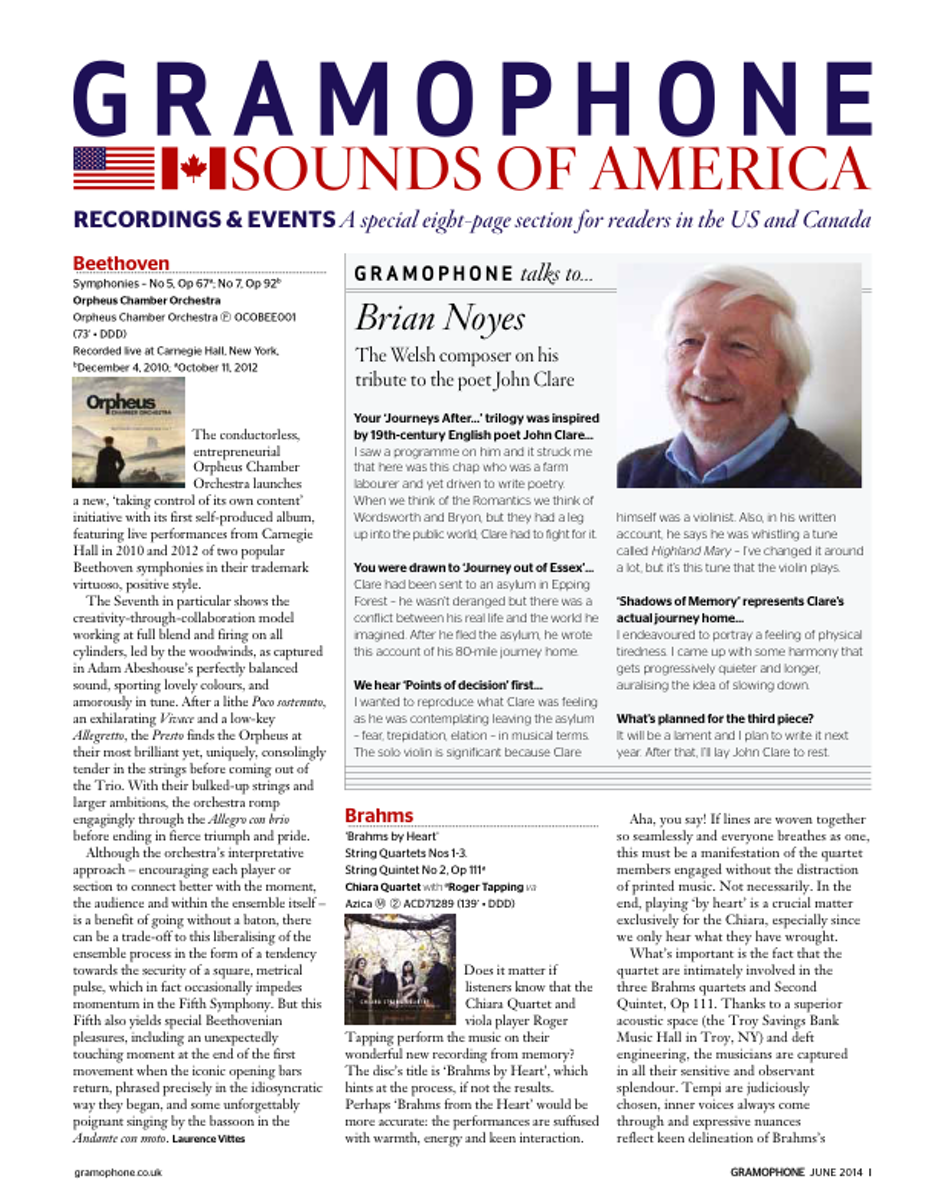
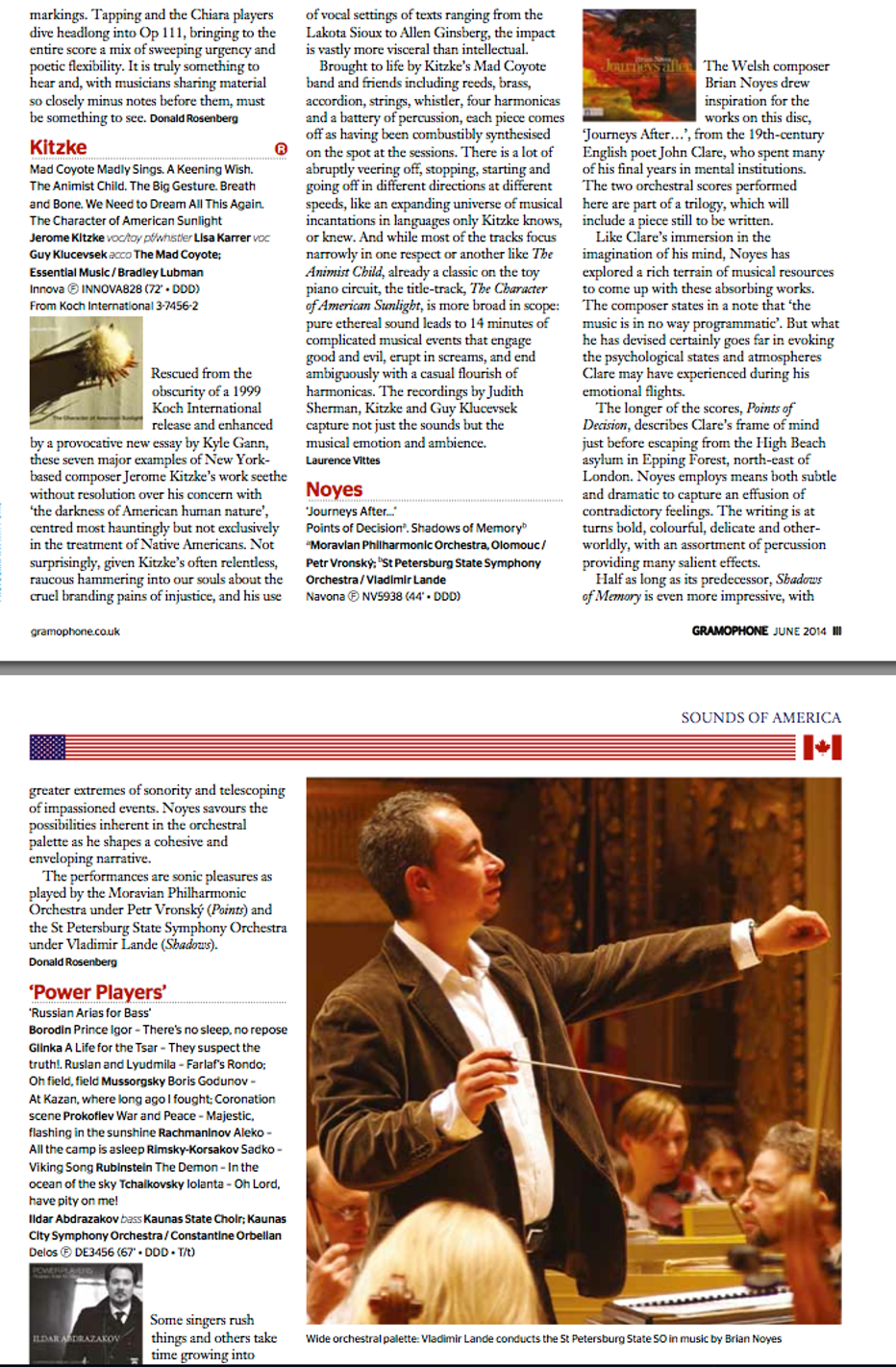
Gramophone Magazine June 2014
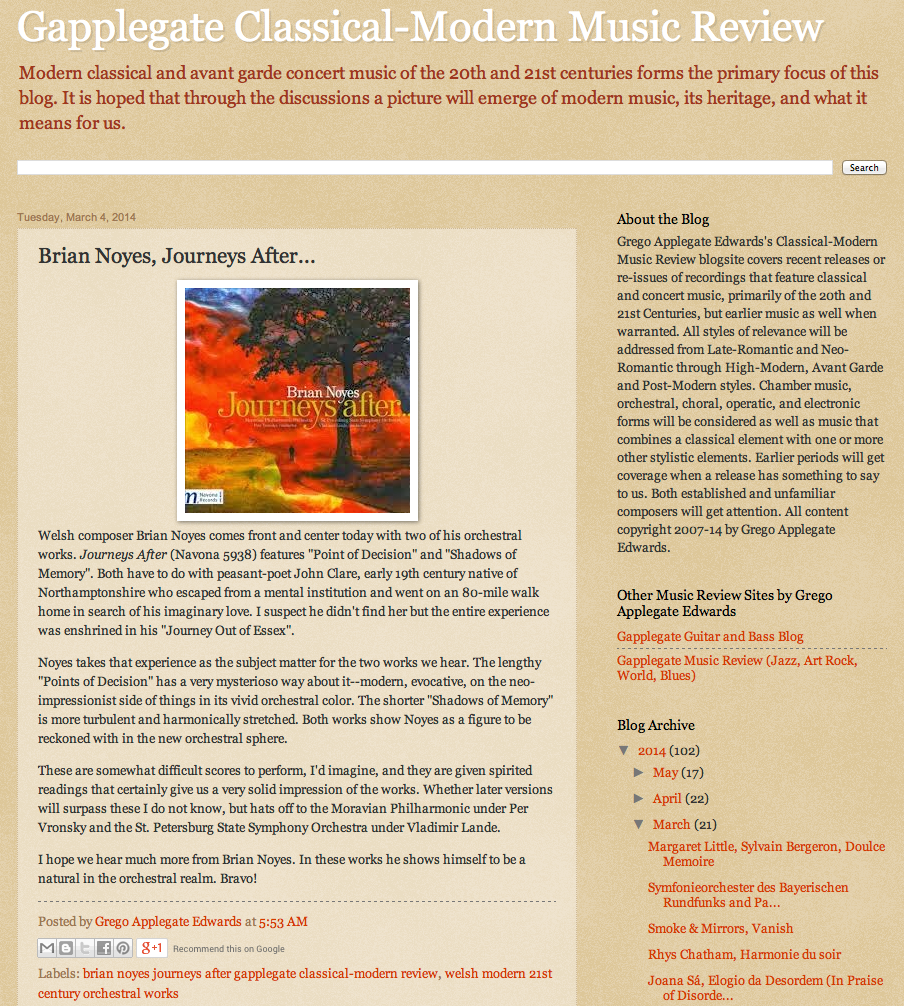
Gappleagate Modern Music Review USA April 2014
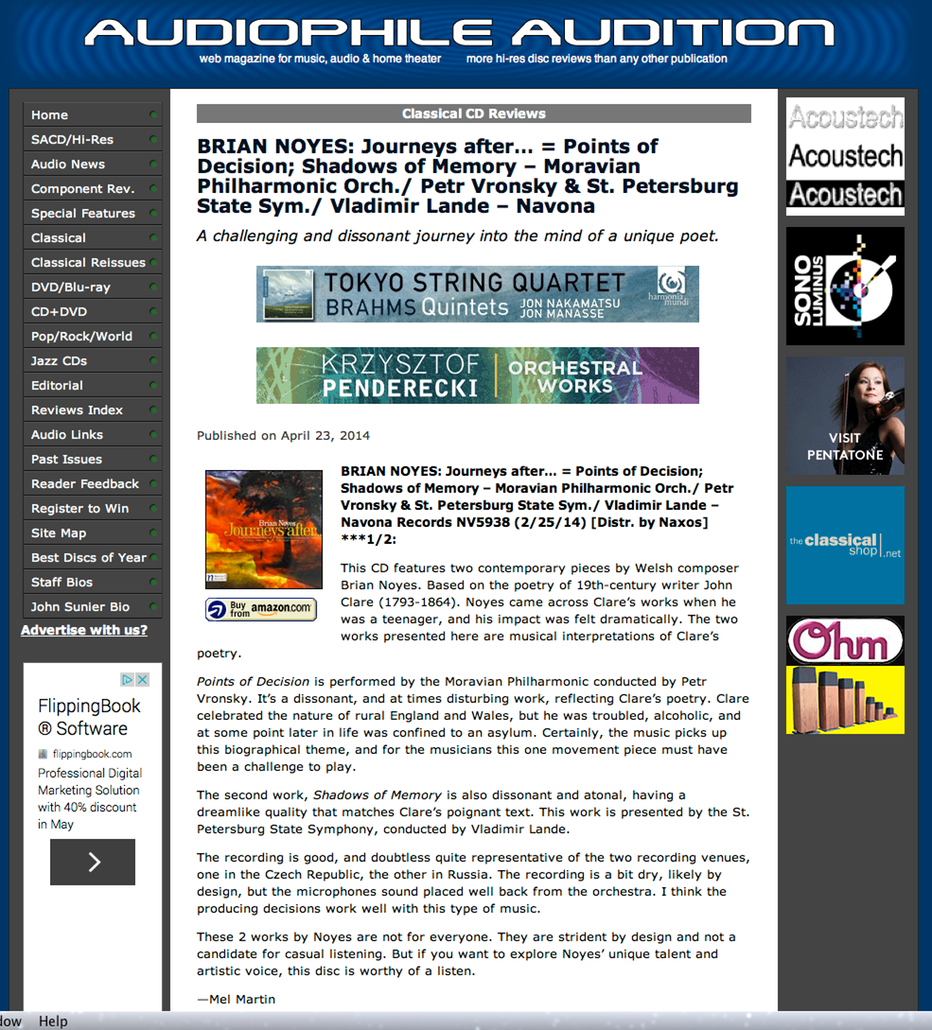
Audiophile Audition USA May 2014

Kathodik – Italy – August 2014
English translation
“This Navona CD offers us two orchestral pieces by Welsh composer, Brian Noyes, which are said to have been heavily inspired by the provincial poet John Clare. In an attempt to reproduce the imaginative mix of emotions that characterize the poems of Clare, Noyes weaves narrative threads contrasting folkloric motifs in turbulent orchestral sounds, within a harmonic language that expertly alternates tonal shades and chromatic colouring. A narrative, of course, which remains on a relatively abstract level (which is inevitable), but that shines out in its consistency and refinement, and conveys the idea of a path, also internalised, which is full of obstacles, in which the subject struggles, conscious of its limitations (sometimes the melodies that describe it are almost swallowed by unrelenting gusts of orchestral sound) but also of its potential, which is also the potential of the music.”
John Clare Society
“The music does what music does so well by conveying different emotional states, and the shifting orchestral textures and timbres are constantly fascinating.”
Piano Trio Op 38 (..in the spirit of Ave Maris Stella)
“a moody, compelling work that has an almost orchestral fullness to it.” Gapplegate Classical Music Review
